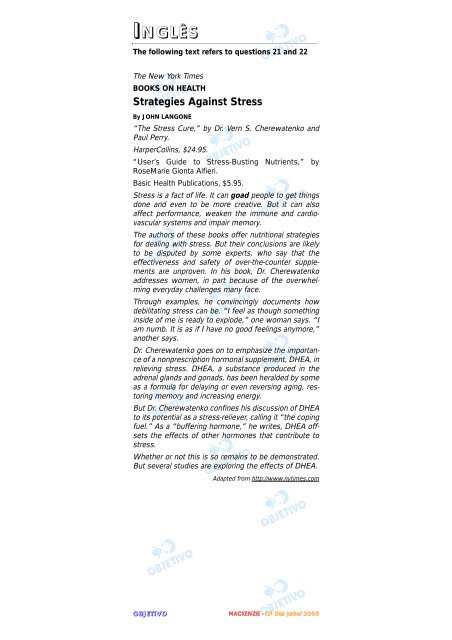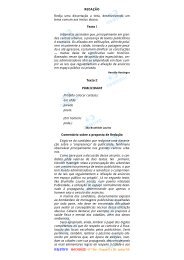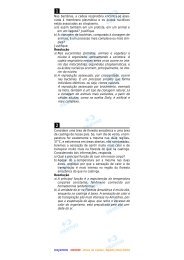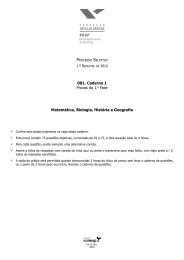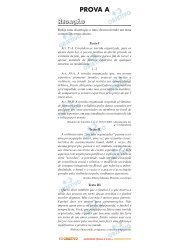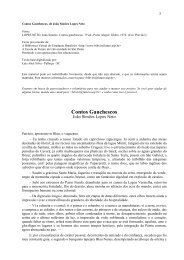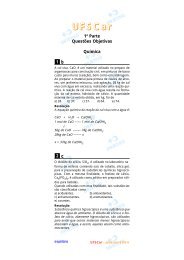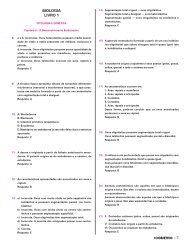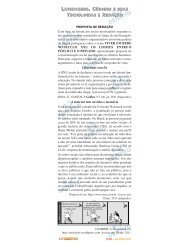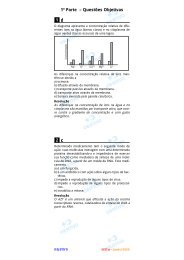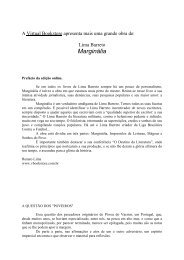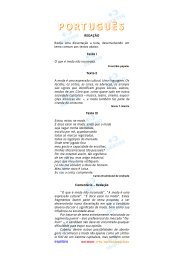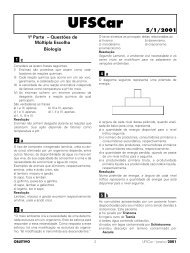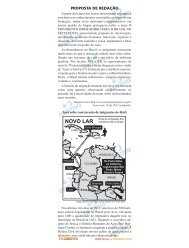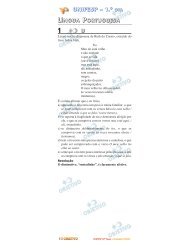REEDDDAAAÇÇÇÃÃÃOO - Curso Objetivo
REEDDDAAAÇÇÇÃÃÃOO - Curso Objetivo
REEDDDAAAÇÇÇÃÃÃOO - Curso Objetivo
Create successful ePaper yourself
Turn your PDF publications into a flip-book with our unique Google optimized e-Paper software.
INGLÊS<br />
The following text refers to questions 21 and 22<br />
The New York Times<br />
BOOKS ON HEALTH<br />
Strategies Against Stress<br />
By JOHN LANGONE<br />
“The Stress Cure,” by Dr. Vern S. Cherewatenko and<br />
Paul Perry.<br />
HarperCollins, $24.95.<br />
“User’s Guide to Stress-Busting Nutrients,” by<br />
RoseMarie Gionta Alfieri.<br />
Basic Health Publications, $5.95.<br />
Stress is a fact of life. It can goad people to get things<br />
done and even to be more creative. But it can also<br />
affect performance, weaken the immune and cardiovascular<br />
systems and impair memory.<br />
The authors of these books offer nutritional strategies<br />
for dealing with stress. But their conclusions are likely<br />
to be disputed by some experts, who say that the<br />
effectiveness and safety of over-the-counter supplements<br />
are unproven. In his book, Dr. Cherewatenko<br />
addresses women, in part because of the overwhelming<br />
everyday challenges many face.<br />
Through examples, he convincingly documents how<br />
debilitating stress can be. “I feel as though something<br />
inside of me is ready to explode,” one woman says. “I<br />
am numb. It is as if I have no good feelings anymore,”<br />
another says.<br />
Dr. Cherewatenko goes on to emphasize the importance<br />
of a nonprescription hormonal supplement, DHEA, in<br />
relieving stress. DHEA, a substance produced in the<br />
adrenal glands and gonads, has been heralded by some<br />
as a formula for delaying or even reversing aging, restoring<br />
memory and increasing energy.<br />
But Dr. Cherewatenko confines his discussion of DHEA<br />
to its potential as a stress-reliever, calling it “the coping<br />
fuel.” As a “buffering hormone,” he writes, DHEA offsets<br />
the effects of other hormones that contribute to<br />
stress.<br />
Whether or not this is so remains to be demonstrated.<br />
But several studies are exploring the effects of DHEA.<br />
OBJETIVO<br />
Adapted from http://www.nytimes.com<br />
MACKENZIE - (1º Dia) Junho/2006


